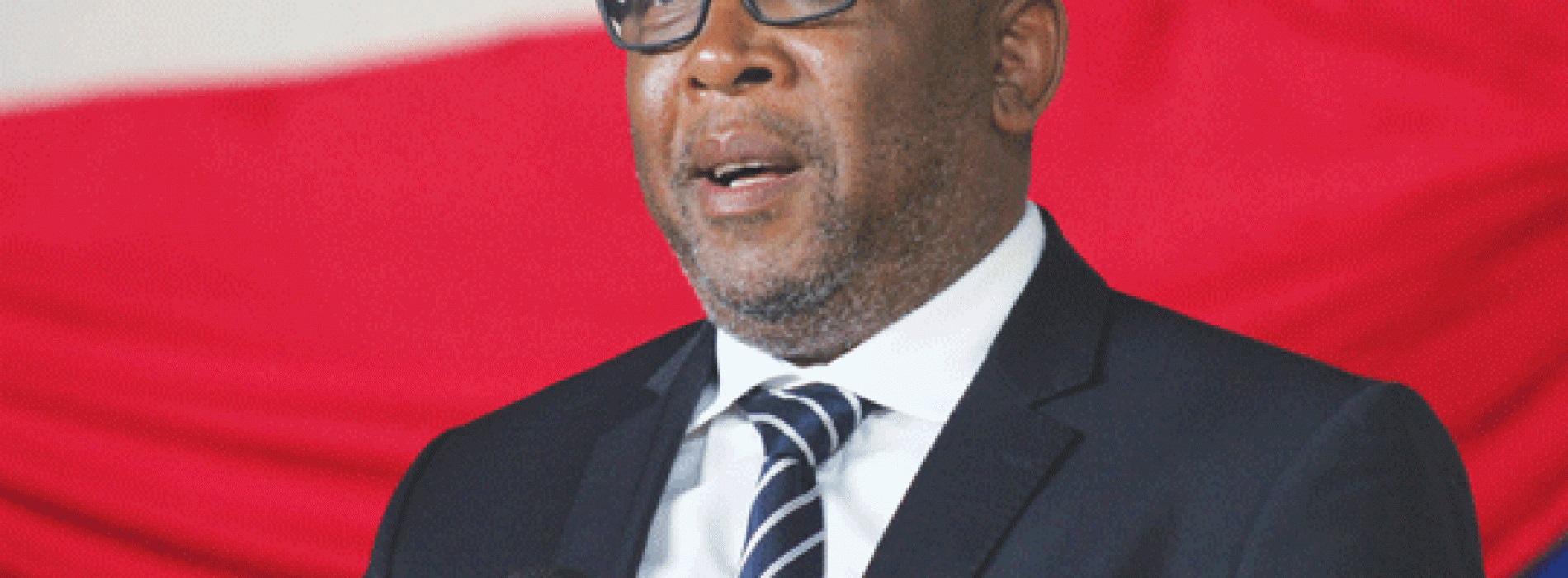Africa-Press – Lesotho. PUBLIC Service Minister Thesele ’Maseribane says the government is working on a plan to export labour abroad to fight youth unemployment. Speaking at a public dialogue on means to improve local businesses and end unemployment last week, ’Maseribane said Foreign Affairs Minister Lesego Makgothi had been tasked with finding ways to export labour.
’Maseribane said the government is deeply concerned about the escalating number of unemployed youth, especially university graduates. He said the government is also concerned by the ballooning wage bill.
“We will ensure that our foreign missions know and have these statistics so that we work together to find opportunities all over the world for our people,” ’Maseribane said.
“Some countries have succeeded in doing this. It is also crucial for us to put it (the plan) to the test.
”
’Maseribane said at least 14 000 unemployed graduates with qualifications ranging from a diploma to doctorate level have registered with his ministry.
The government cannot absorb all these graduates because there are no vacancies, ’Maseribane said. He however said this number does not represent the total of unemployed graduates as some are registered with the Ministry of Gender.
“These are graduates in different disciplines from accounting to communication technologies and computer science,” he said.
’Maseribane said all these students were funded by the government and their parents to undertake their studies and “it is unfortunate that they do not have jobs”.
He said it was no longer viable for the government to absorb all these graduates into the civil service. He said the wage bill worries not only the government but also international organisations like the World Bank and the International Monetary Fund.
“In southern Africa Lesotho is currently sitting at number four in terms of our wage bill and this is alarming,” he said.
“It calls for a radical approach and a partnership with the private sector.
”
He said it is only through the development of the private sector that they can be able to create jobs and decrease the alarming unemployment rates.
He also said it is imperative that all relevant stakeholders work together to try and put a stop to this crisis. ’Maseribane suggested that any investors coming into the country should be referred to the public service before recruiting foreigners.
“Even the Ministry of Labour before issuing permits should look at our database first to see that indeed the required skills are not available,” he said.
He appealed to those in construction to absorb graduates as currently there are several construction projects like the Polihali dam that will require skilled workers in different fields.
The Lesotho Economy Profile 2018 says the government remains the largest employer with at least 45 000 employees. Two years ago the government wage bill rose to 23 percent of GDP, which made it the largest in sub-Saharan Africa.
Lesotho’s largest private employer is the textile and garment industry with about 36 000 workers, mainly women, in factories producing garments for export to South Africa and the United States.
Finance Minister Dr Moeketsi Majoro told parliament during his budget speech in July last year that “the Lesotho wage bill as a proportion of national output is the largest in the world”.
“It has grown from just over 10 percent of GDP two decades ago to the current 19 percent and its growth has been financed by the reduction in the share of goods and services, which has cumulatively reduced the labour productivity of the civil service,” Majoro said.
“The burden of reducing spending will fall significantly on the proper management of the wage bill evolution, including by strengthening institutions, human resource and public financial management,” he said.
“In addition, government is implementing biometric registration of all public servants and intends to limit wage increases to below the increases in domestic revenues.
”
Thabo Qhesi, CEO of the Private Sector Foundation of Lesotho (PSFL), said as the private sector they agree with the minister’s view that the private sector should create jobs.
However, he said the minister should assist the private sector by ensuring that businesses that supply government with goods and services are paid on time so that they can also absorb these graduates.
Qhesi said at the moment “the private sector is unable to hire graduates due to inadequate finances resulting from the uncertainty created by late payments from the government”.






